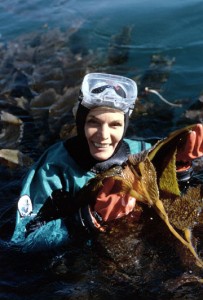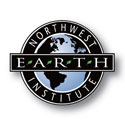Introduction to Just Below the Surface Curriculum: Remarks by Sylvia Earle
 Below is the introduction from our recently released curriculum, Just Below the Surface: Perspectives on the Gulf Oil Spill, written by Dr. Sylvia Earle, oceanographer, formerly Chief Scientist for the U.S. National Oceanic and Atmospheric Administration and currently a National Geographic explorer-in-residence. This one session discussion guide explores the connections between Deepwater Horizon, energy policies and our lifestyles. It offers an opportunity to reflect further on this historical event and the lessons it holds for us moving forward—individually and collectively. The intent is not to assign blame, but rather to take responsibility—as conscious consumers and concerned, active citizens.
Below is the introduction from our recently released curriculum, Just Below the Surface: Perspectives on the Gulf Oil Spill, written by Dr. Sylvia Earle, oceanographer, formerly Chief Scientist for the U.S. National Oceanic and Atmospheric Administration and currently a National Geographic explorer-in-residence. This one session discussion guide explores the connections between Deepwater Horizon, energy policies and our lifestyles. It offers an opportunity to reflect further on this historical event and the lessons it holds for us moving forward—individually and collectively. The intent is not to assign blame, but rather to take responsibility—as conscious consumers and concerned, active citizens.
This curriculum is designed for high school, college and community groups. For more information on how to purchase this curriculum, please click here.
Sylvia Earle to U.S. Congress: Cheap Oil is Costing Us the Earth
Sylvia Earle’s prepared remarks:
Thank you for the opportunity to speak to you on behalf of the ocean and for people now and in the future who will be affected by the consequences of the Deepwater Horizon oil spill. That includes just about everyone on the planet, one way or another.
For more than fifty years, I have had experience on, around, above and under the Gulf of Mexico as a marine scientist and explorer, founded and led engineering companies devoted to development of equipment for access to the deep sea, served as a member of various corporate and dozens of nonprofit boards and as a member of numerous state, federal and international committees concerning ocean policy.
You have seen plenty of bad news images relating to the Deepwater Horizon oil spill. I want to illustrate here that the Gulf of Mexico is not, as some believe, an industrial wasteland, valuable primarily as a source of petrochemicals and a few species of ocean wildlife that humans exploit for food, commodities, and recreational fishing. These are assets worth protecting as if our lives depend on them, because in no small measure, they do.
The Gulf of Mexico is a living laboratory, America’s Mediterranean, a tri-national treasure better known for yielding hurricanes, petrochemicals, shrimp and, in recent years, notorious “dead zones,” than for its vital role in generating oxygen, taking and holding carbon, distributing nutrients, stabilizing temperature, yielding freshwater to the skies that returns as rain–contributing to the ocean’s planetary role as Earth’s life support system.
As with the ocean as a whole, the most important values we derive from the Gulf of Mexico are those we take for granted. We have, because at one time, we could. But that is no longer true. We now understand there are limits to what we can put into or take out of this or any other part of the ocean without unfavorable consequences back to us.
It once seemed that–as with the ocean as a whole–the Gulf was so big, so vast, so resilient, that nothing we could do could harm it. The benefits we believed would always be there, no matter how large the trawls, how long the nets, how numerous the hooks for catching ocean wildlife–or how many, how long or how deep the pipelines, drilling operations, seismic surveys or production rigs.
While yielding to the pressure to extract golden eggs from the golden Gulf, we have failed to take care of the Gulf itself.
Destructive fishing pressure has depleted sharks, tunas, menhaden, groupers, snappers, tarpon, turtles, shrimp, crabs, lobsters. More than 80 percent of some species have been extracted in 50 years, more than 90 percent of the sharks, swordfish, marlin and most grouper species. Fewer than 10 percent of the bluefin tunas remain, and all of the monk seals that once abounded as far north as Galveston have been exterminated. Used for meat and oil, the last living one was seen in 1952.
The main excuse for killing seals and whales was for the extraction of oil to provide heat and light to enhance human societies. The shift to fossil fuels may have saved the whales and seals, but now we are killing mountains and downstream rivers and the sea beyond to extract coal.
Excess carbon dioxide from burning fossil fuels–coal, oil, gas–is warming the planet and acidifying the ocean. Oil spills have become less frequent with the application of new technologies, but it doesn’t take many large ones, whether during the transport or drilling, to remind us of the dire consequences of neglect.
Ironically, fossil fuels have powered civilization to new heights of understanding–including the awareness that the future of humankind depends on swiftly shifting to energy alternative that do not generate carbon dioxide and otherwise cause planet-threatening problems!
Fossil fuels took us to the moon and to the universe beyond, and made it possible for us to see ourselves in ways that no generation before this time could fathom. They have provided the backbone of the extraordinary progress we enjoyed in the 20th century and now into the 21st. We now know that those of us now alive have participated in the greatest era of discovery and technological achievement in the history of humankind, largely owing to the capacity to draw on what seemed to be a cheap but by no means endless source of energy.
***
The rest of Dr. Earle’s remarks are presented in Just Below the Surface: Perspectives on the Gulf Coast Oil Spill.
Sylvia Earle is an oceanographer, explorer, author and lecturer, Explorer in Residence at the National Geographic Society, called Her Deepness by the New Yorker and New York Times, a Living Legend by the Library of Congress, and first Hero for the Planet by Time Magazine. She has years of experience as a field research scientist, expedition leader, government official, and director for corporate and non-profit organizations. Sylvia earned a B.S. degree from Florida State University (1955), M.S. and PhD. From Duke University (1956, 1966).























NO COMMENT
Leave a comment